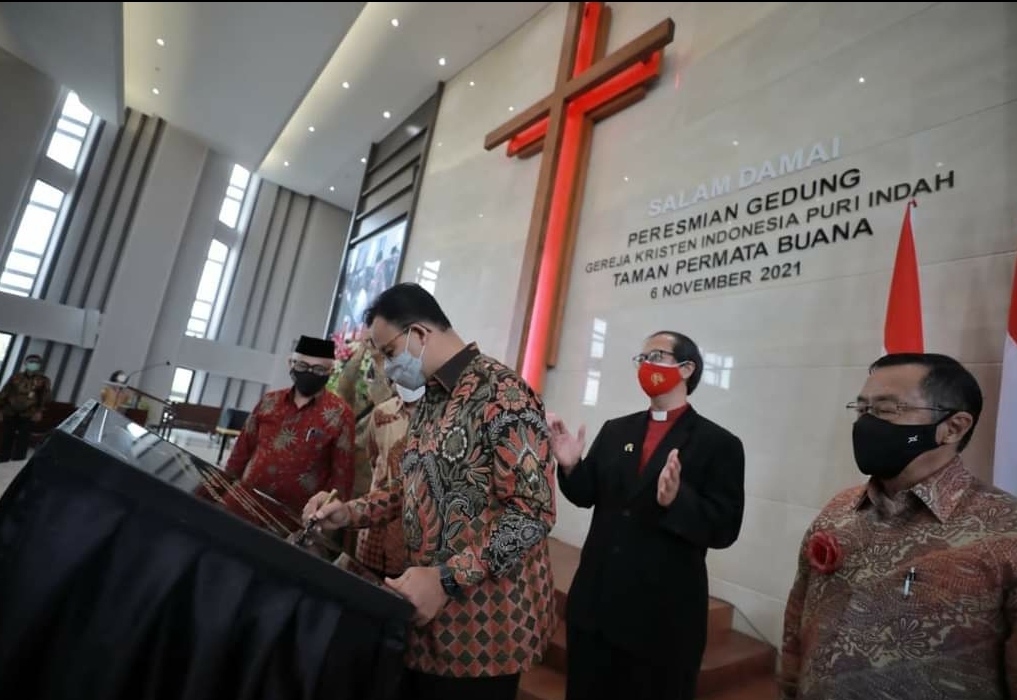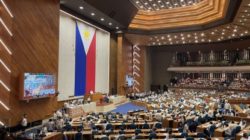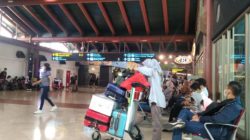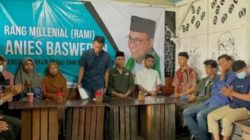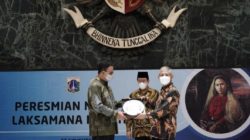By: Anies Rasyid Baswedan (Governor of DKI Jakarta)
The night before Eid al-Fitr takbir echoed, the sound of beduk-talu. Thousands of spilled out echoed takbir in various corners of the capital. Some showed a face of emotion because they could re-echo takbir in the open space ahead of a fitri day.
The joyous emotion is not without reason. The tradition of traveling takbir had been banned several years earlier. Imagine when in the hometown the residents use a mobile torch, echoing takbir, but in the capital is not allowed to continue the tradition.
In the pre-pandemic period, Jakarta’s attitude was clear to allow takbiran activities to be carried out in an orderly manner. More than just continuing tradition, it’s a message that Muslims have the right to celebrate the night of the eagerly awaited victory.
A few months after takbir toured in pre-pandemic times, on the side of the main road in the capital was colored by a choir singing Christmas songs. A number of music communities and student choirs hum christmas carols. On Thamrin Street, large spruce trees and red colors come dominating. For the first time: the capital held a Christmas Carol ahead of Christmas.
Another story is also present from our Hindu brothers. Since the republic’s independence, Balinese Hindus in the capital have no cremation facilities for their dead. In fact, Tamil Hindus can never have a temple for worship. Thankfully, all the facilities have now been successfully realized. DKI Jakarta is the only province that gives facultative holiday rights for Hindus who celebrate Depavali.
This effort that is trying to continue to be knitted in Jakarta, in addition to various initiatives based on equality, other efforts by presenting the Operational Assistance Program of Places of Worship (BOTI). BOTI is given to all religions.
Through BOTI, each religious community can collaborate to build religious facilities and mobilize its people, namely activists or religious communities. It is an embodiment of the idea that the capital belongs to all, inclusive, with a pattern of collaborative interaction.
The policies and steps undertaken in Jakarta are based on a simple idea: Jakarta should be a unifying home, including across religious communities, without exception. It is not its origins that are united, but united in purpose.
When public spaces in Jakarta are colored by various interactions between religious people, the feeling of equality and togetherness will continue to grow. Such initiatives are an effort to realize equality and togetherness for every religious community in the capital.
The goal is clearly not to mix up religions, but to build interfaith citizen interaction while respecting different faiths. Again it is not a unified origin, but a united goal.
When it comes to unity, there is often a misperception that it is outward and final, it has been and will continue to be so. In fact, unity is a continuous struggle sustained by policies that humanize its citizens. The basis of building unity is an equal and equitable policy, not an emotional sentiment.
The perspective of seeing various religious initiatives also needs to be seen not only in the vertical aspect between humans and the Creator, but also the horizontal impact of interaction between religious people.
When cremation tools for Hindus are presented, underprivileged people in the capital can get cremation services when they return home. Cremation facilities are more than just facilities, but transformed into the presence of state representatives for their citizens.
When the mosque has been renovated, many are not only places of worship but have an impact on the surrounding community. During the pandemic, countless mosques, churches, monasteries, temples became the center of vaccination of citizens.
When visiting Bethel Church indonesia, there is one message that is remembered continuously from the people there. The message is simple: no one, any religion, should feel the shortcomings around the church environment.
With equitable policies, places of worship and religious people not only become centers of religious activities, but also become social, economic, and cultural drivers in the community.
The Principle of The Supreme Divinity, needs to be connected with the fifth precept on social justice. Without social justice, unity is impossible to achieve.
Joint Efforts to Create Unity
We need to realize that diversity is something natural, a destiny of God. Diversity is a fact, while unity is a choice. Diversity is God’s creation to be grateful for, but unity is the result of human effort that should be maintained and strengthened.
Unfortunately, we more often glorify the diversity of God while discouraging the unity that is the result of human labor. Unity should no longer be viewed in normative glasses.
It is time for us to realize that citizens do not automatically unite without effort, unity requires an uneasy precondition: Unity comes from a sense of justice.
Celebrating religious holidays in public spaces, collaborating with diverse religious people, aid programs for homes or worship facilities, or various initiatives that favor the weak are examples of efforts to bring socially just unity. An attempt to ignite unity in every corner of the capital.
Jakarta is the interaction space of all elements in this nation. We are united in Jakarta for the same purpose. It is not his origins that are united but his purpose. Elements of the nation from all over the country came to this city with the same goal of gaining true independence: social justice and prosperity.
Therefore, equality of opportunity for all is a way of building and strengthening unity. Each gets equality. Each can do according to their beliefs. That’s the effort that continues to be carried out to make Jakarta a unifying home for all. (*)
*This post has been published on Anies Baswedan’s Facebook page.


